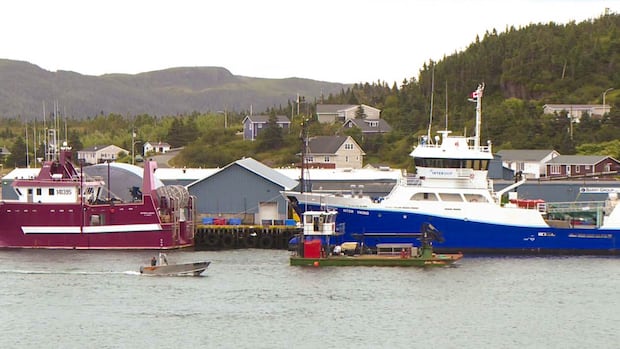A UN push for investment to protect the world’s oceans yielded around $10 billion US ($13.6 billion Cdn) in deals at a conference last week, way below the estimated annual need as many investors sought clearer regulations on ocean management before committing funds.
While political leaders at the United Nations conference in Nice took steps to tackle overfishing and pollution threatening delicate ecosystems and the people who depend on them, getting countries to agree to better governance has proven tough.
Only 50 countries ratify High Seas Treaty so far
Just 50 countries have so far ratified a new High Seas treaty that sets out rules agreed to by more than 130 nations in 2023 to govern international waters and clamp down on harmful practices.
Neither Canada nor the United States have ratified the treaty.
The lack of a clear governing framework and robust ocean-related data has stymied private sector finance to date, said Oliver Withers, head of nature at British lender Standard Chartered.
“The high seas don’t belong to any one individual sovereign,” he said. “It is a significant challenge.”
World leaders and scientists are gathering in Nice, France, for this week’s United Nations Ocean Conference, aimed at confronting the risks of climate change, plastic pollution, the loss of ecosystems and overfishing.
Funding mostly from public sector banks
The bulk of deals made in France came from public sector banks, including $2.5 billion from the Development Bank of Latin America and the Caribbean and $3.5 billion from a group of other development banks to fight plastic pollution.
While a step up, the total figure falls far short of what the UN says is needed. Between 2015 and 2019, only $10 billion US was invested against the UN estimate of $175 billion US in annual funding that the world body says is needed to meet the sustainable development goals set out in 2015.
Those goals included ending illegal fishing and banning subsidies that encourage it by 2020, conserving 10 per cent of marine areas by 2020 and significantly reducing marine pollution by 2025.
“Public finance isn’t enough, but private finance is even less. So I think it’s a space in its infancy,” said Francine Pickup of the UN Development Programme.
Pickup said improving policies and regulation, including removing subsidies she said encouraged harmful practices such as overfishing, was key, followed by the creation of a pipeline of investments, including in start-ups focused on ocean-related technology.
A group of leading ocean and climate scientists, including Canadians, is calling for a ban on deep-sea mining just as U.S. President Donald Trump moves to fast-track undersea mining approvals.
Between 2020 and 2025, ocean tech received just 0.4 per cent of the $202 billion US invested across all sectors during that period, data shared with Reuters by industry tracker Sightline Climate showed, although the data showed a stronger start to 2025.
Investors seek treaty enforcement mechanisms
“What we seek as investors is that governments and the policymakers address systemic risks,” said Robert-Alexandre Poujade, biodiversity lead at BNP Paribas Asset Management.
He said he would welcome the treaty “if it has lots of teeth and enforcement mechanisms.”
Fixing the funding shortfall also requires a concerted effort by policymakers and investors to tackle challenges that impede the protection of marine biodiversity and ocean health.
A warming planet is heating up the oceans, exacerbating effects such as water acidification and coral bleaching that climate scientists say will be improved if the world manages to cut carbon emissions as planned.
Overfishing and polluting sea vessels, offshore oil drilling and, potentially, deep-sea mining that collectively damage ocean health also require firmer policy action, scientists, ocean experts and investors say.
While action has hitherto been slow, there were signs of progress in Nice, as more than 20 countries backed a call by France to prevent deep sea mining; and a number of new marine protected areas were created.
“In a sense, the ocean is the last area that we have been pillaging without thinking about tomorrow,” said Flavien Jouber, Seychelles minister for agriculture climate change and environment, describing a “sense of free-for-all.”







